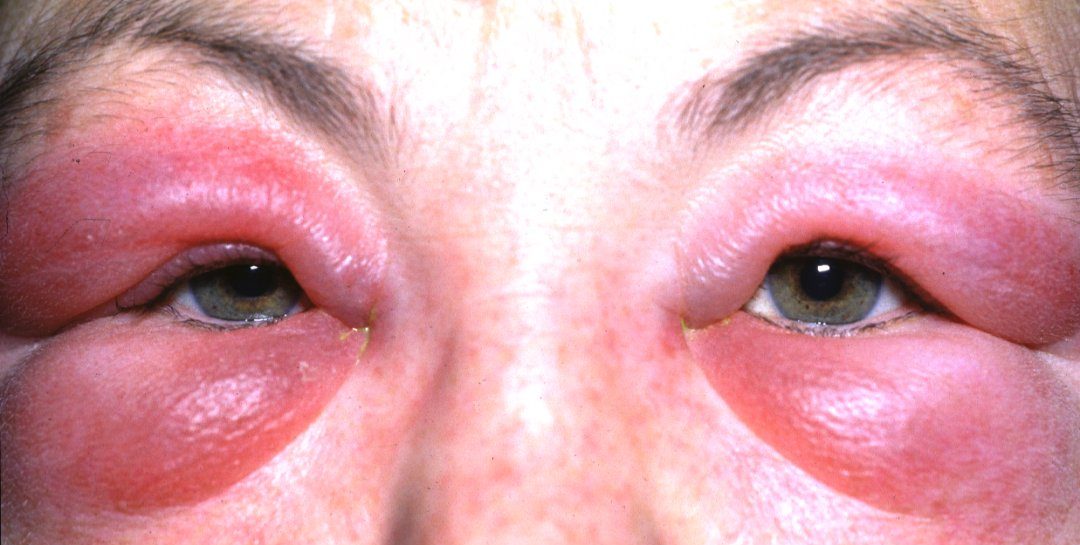Conjunctivitis means inflammation of the conjunctiva. The conjunctiva is the thin ‘skin’ that covers the white part of the eyes and the inside of the eyelids. Allergic conjunctivitis causes red, watery, and itchy eyes. It is commonly caused by allergy to pollen and is not an infection.

Photogaphs of typical conjunctival swelling seen in allergic conjunctivitis
Both eyes are usually affected and symptoms tend to develop quickly. Typically, the eyes are itchy, and look red or pink. A burning feeling may occur but the eyes are not usually painful. The eyelids tend to swell. The eyes water more than usual, but do not become too ‘gluey’ as in infective conjunctivitis. Vision is not usually affected. In more severe cases the conjunctiva under the upper eyelids may swell, produce a lot of mucus, and look lumpy.
Most cases start to settle on treatment after a few days. However, you should see your doctor again if any of the following occur.
Disclaimer : The information provided in this website is intended as a useful aid to general practitioners, optometrists and patients. It is impossible to diagnose and treat patients adequately without a thorough eye examination by a qualified ophthalmologist, optometrist or your general practitioner. Hopefully the information will be of use prior to and following a consultation which it supplements and does not replace.


